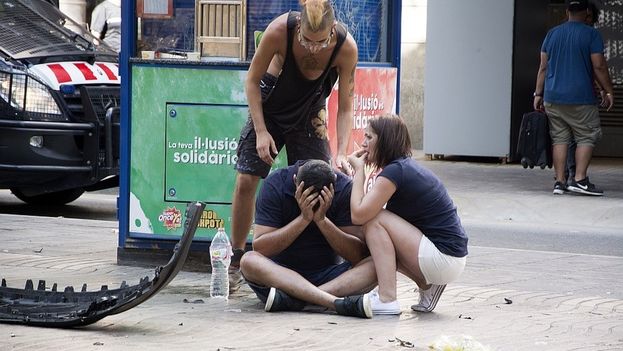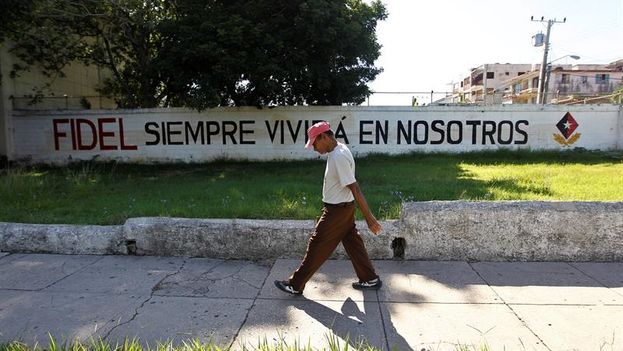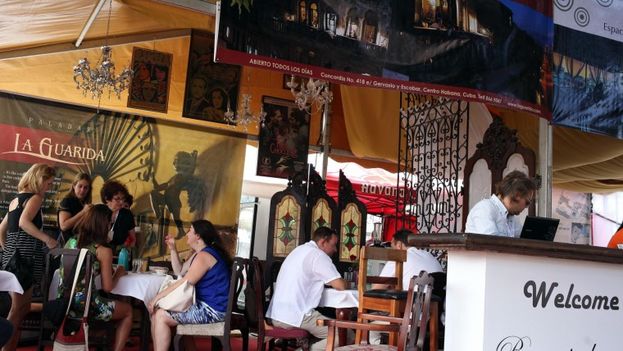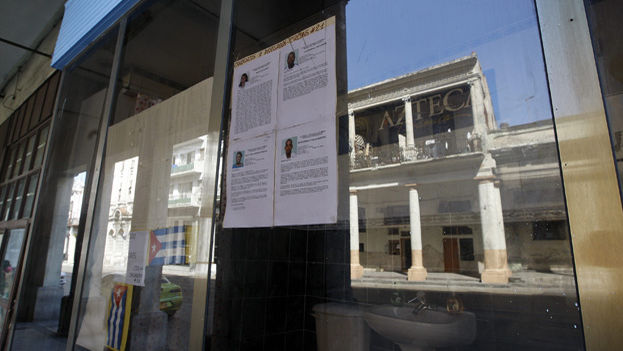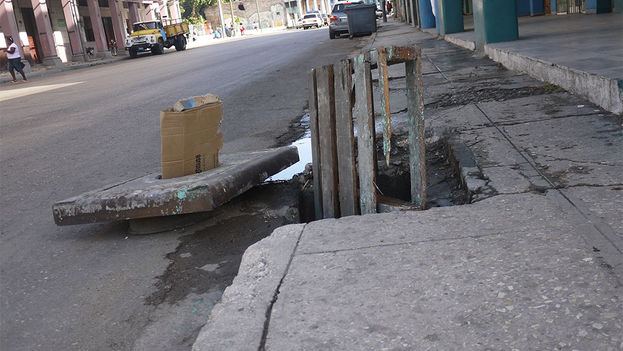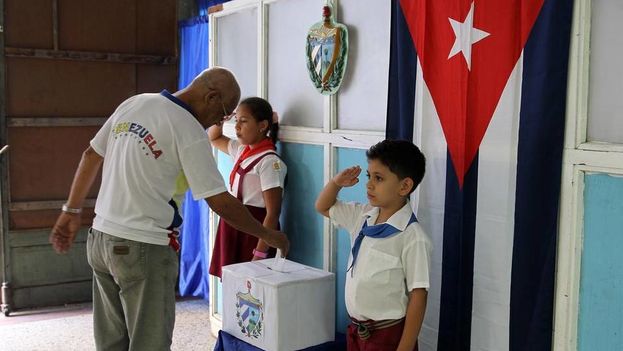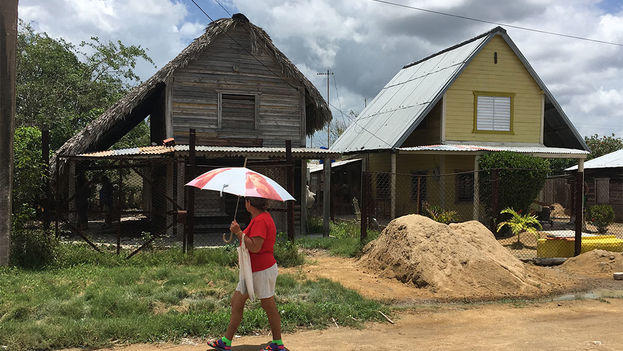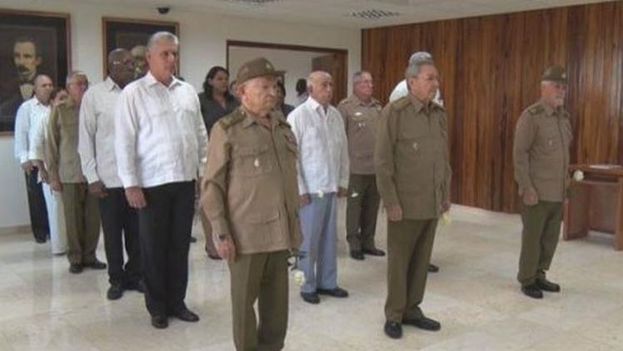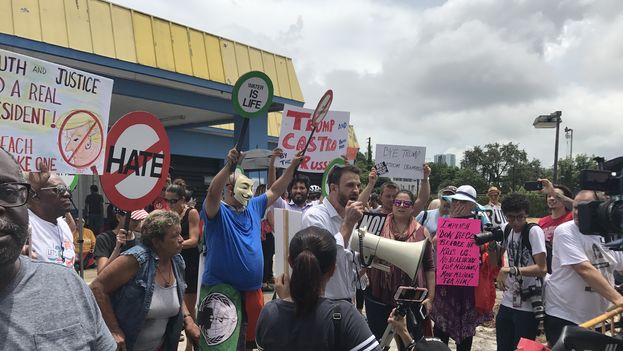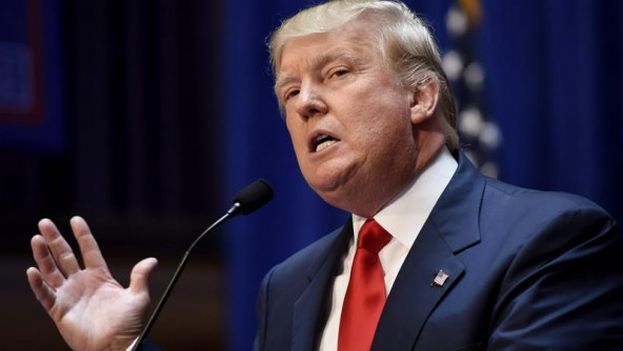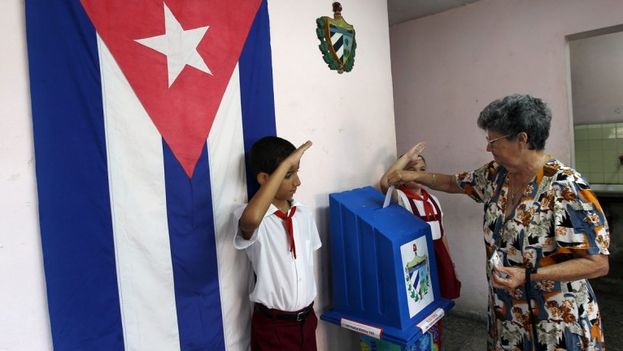
![]() 14ymedio, Reinaldo Escobar, Havana, 4 September 2017 — The Cuban elections have several publicized trademarks, among them the presence of children dressed in the school uniform to guard the polls. These Pioneers* confirm with a salute when the voter deposits their vote, in contrast to the armed soldiers who in the Republican past prevented the theft of the ballot boxes.
14ymedio, Reinaldo Escobar, Havana, 4 September 2017 — The Cuban elections have several publicized trademarks, among them the presence of children dressed in the school uniform to guard the polls. These Pioneers* confirm with a salute when the voter deposits their vote, in contrast to the armed soldiers who in the Republican past prevented the theft of the ballot boxes.
For four decades, the presence of these Pioneers has become a favored image of photographers and a symbolic gesture, in its double meaning of a signature act or uselessness. It is clear that no one is going to manipulate the ballots since all the legitimized candidates represent the interests of the only permitted party. continue reading
This September 4 is the first step in a process that will end on February 24, 2018, when Cuban citizens will find out who has been designated to fill the seats of the Council of State, particularly its president. This Monday the process starts as a “pilot experience” in a single constituency of each of the country’s 168 municipalities. Voting will take place in the other constituencies during the month of September.
The Government is concerned that these candidate nominating assemblies will allow an unwelcome candidate to make it through. Not only do they fear an opponent who belongs to an anti-government organization, but in a secluded district someone might appear who has the reputation of not applauding with sufficient enthusiasm.
To prevent such a thing from happening, the allegorical appeal of the Pioneers as guardians of the ballot boxes is of little use. With plenty of time in advance, a harsh-demeanored seguroso—State Security agent—will have visited anyone who intends to run independently.
It will not be necessary to show the ‘instruments’ to the nonconforming, it will be enough to warn of the fatal consequences that such daring might bring. Someone will remind them that they have a grandparent admitted to the hospital, a child who hopes to be a college student some day, a brother who is applying for a license to be self-employed, or a pig that fattens in their yard without permission.
If the threats do not take effect and the disobedient show up to be proposed in the nomination assembly, the work will be finished by the militants of the zone’s Party nucleus, who will have been schooled in the darkest corners of the biographies of the intrepid candidates.
Without modesty or shame they will point out some baseness such as “if he has been unfaithful to his partner, how can he be expected to be loyal to his constituents”; or mention that he buys on the black market or never shows up to perform voluntary work. Finally, the duly warned participants will be asked by a public show of hands whether the discredited aspirant will be nominated as a candidate.
On this occasion a new resource will come into play. The youth brigades of the 9th Congress of the Committees for the Defense of the Revolution (CDR) have programmed their agenda of activities precisely during the time period in which the nominating assemblies are held.
The initiative, which aims to carry out volunteer work and tour historical sites in tribute to the great CDR event, counts among its efforts “to support the assemblies where the people propose their candidates,” and everyone knows what this means. As Red Guards they will be watching over the purity of the proposed from the very genesis of the process.
The ballots will only bear the names of the most obedient and when the time comes to deposit them in the polls, the innocent Pioneers will have nothing to worry about.
Translator’s note: Cuban children are initiated into the Communist Party’s Pioneer movement in early elementary school and continue until adolescence, when they are expected to join the Young Communist League. The Pioneer’s motto, shouted by the children at school assemblies, is “Pioneers for communism: We will be like Che!”


